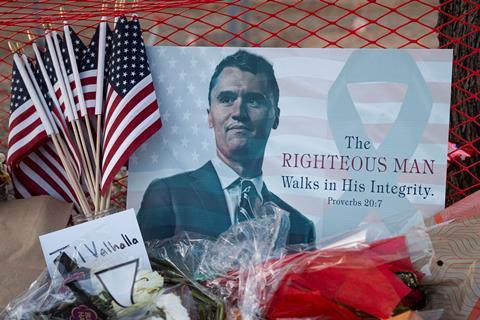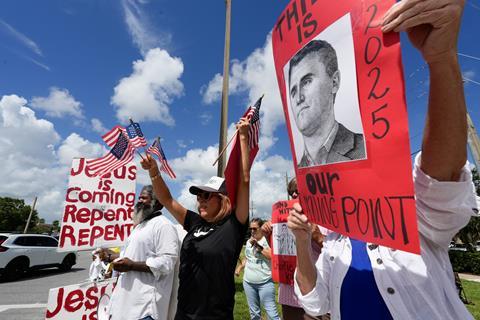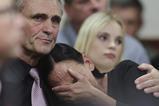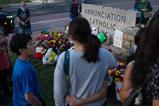He may have been known as a conservative commentator and founder of Turning Point USA, but Charlie Kirk said his faith in Jesus was ”the most important thing”, notes Billy Hallowell

In recent years, Charlie Kirk’s name has become virtually synonymous with conservative politics, with the popular author and podcaster having a direct line to President Donald Trump.
But Kirk — who was assassinated last Wednesday at Utah Valley University — was far more than a political operative.
The husband and father of two developed a robust and well-thought-out public theology. While he was known for his cultural and political takes, it soon became apparent that Kirk was most pointedly driven by his love for Jesus.
In fact, he often used his platform to share his love for the Lord.
“Jesus defeated death so you can live,” he wrote just days before his assassination. On another occasion, Kirk urged, “Tell someone about Jesus this weekend.”
He died doing what most pastors in America ought to do: speaking the truth of God
These messages only scratch the surface, as Kirk also devoted a substantial amount of time to strictly theological conversations. In April, I attended a sit-down interview between Kirk and Pastor Allen Jackson at Dream City Church in Phoenix, Arizona. The conversation provided a deep dive into a theological understanding of evil and the demonic realm, with Kirk smoothly exploring biblical themes ranging from the nature of angels to the impact of the demonic on culture.
All of this may come as a surprise to those who know Kirk primarily through viral political memes and brief social media clips. Yet it was a major part of his life and ministry.
Often intersecting with the theological, Kirk also routinely hosted his “Prove Me Wrong” series across college campuses, fielding questions from liberals, atheists and others generally not in agreement with his sentiments.
Kirk often discussed and heralded the essential nature of dialogue. He once said, “When people stop talking, that’s when you get violence.” It’s tragic to consider that he was living out that commitment to free speech — debating cultural and biblical issues at Utah Valley University — when he was slaughtered.
Regardless of what people believed about Kirk and his contentions, he was willing to show up and speak with opponents, typically showing grace and love in the process.
Some have sought in the wake of his death to focus on clips and past statements they find objectionable, though these snapshots fail to capture the entirety of Kirk’s life and work.

The massive reaction to Kirk’s death is a stunning statement about his influence, as we’ve seen an outpouring quite unlike anything I’ve witnessed for similar figures.
He built a political powerhouse, but that was not the legacy for which Kirk pined. In an interview with “The Iced Coffee Hour,” host Jack Selby asked how Kirk wants to be remembered. “I want to be remembered for courage for my faith,” Kirk responded. “That would be the most important thing; most important thing is my faith.”
I had Kirk on my show in 2019 and he shared similar sentiments. He explained how he would often debate his teachers when he was a kid, targeting what he called “misrepresentations of history.”
“Everything was always taught through a lens that all problems in the world are because of America — [that] we’re a racist, bigoted, homophobic, terrible country,” he said. “And that also religion is like the worst thing ever, essentially.”
Kirk recalled being frustrated by the claim that all wars were rooted in religion. This frustration formed the roots of his activism.
“I’m an evangelical Christian,” Kirk told me. “Jesus is the Saviour of the world and my personal Saviour…That really shapes my worldview, in every sense of it.”
And Kirk believed he was living out that devotion, imploring Christians to think more deeply about their spiritual and political responsibilities. This is a goal he certainly accomplished.
Over the weekend, scores of social media posts featured people so rocked by his death that they spoke about going to church and picking up Bibles for the first time in eons. Some houses of worship reported a massive influx of congregants, with record conversions to the faith.
Something about Kirk’s life and commitment to biblical values made his death hit differently. Dream City Church pastor Luke Barnett delivered a passionate proclamation about Kirk after his death, arguing that he “died doing what most pastors in America ought to do: speaking the truth of God.”
Let’s pray for Kirk’s wife, children and all those impacted — and for peace and God’s will in the wake of true tragedy.





































5 Readers' comments